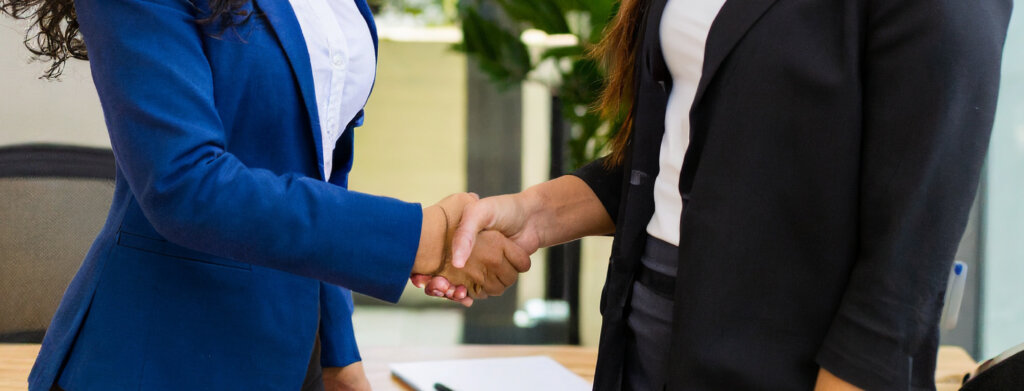Executive Podcast #264: Influential Selling with Susan Davis (Part 2)

In this episode, our hosts continue their discussion with Susan Davis on the topic of influential selling. They introduce the concept of countering objections as a crucial aspect of the selling process. Susan emphasizes the importance of viewing objections as buying signals and provides strategies to handle objections effectively. The hosts also touch on common objections, such as price and status quo, and explain how to address them. Throughout the episode, they highlight the significance of relationship-building, adding value, and building trust with customers in the sales process.
References:
MaxwellLeadership.com/PrivateWorkshop
Become a Maxwell Leadership Certified Team Members at MaxwellLeadership.com/JoinTheTeam
Download our Learning Guide for this podcast!
Perry Holley:
Welcome to the Maxwell Leadership Executive Podcast, where our goal is to help you increase your reputation as a leader, increase your ability to influence others, and increase your ability to fully engage your team to deliver remarkable results. Hi, I’m Perry Holly, a Maxwell leadership, facilitator and coach.
Chris Goede:
And I’m Chris Goede, executive vice president with Maxwell Leadership. Welcome and thank you for joining. This is part two. Today of a change for us. We thought, well, they’ve heard enough of Perry and I. We needed to bring a female voice.
Susan Davis:
There we go.
Chris Goede:
On the podcast, the Rose between the Thorns.
Susan Davis:
That’s right.
Chris Goede:
Those of you that are watching via YouTube, susan is kind of sitting in the middle in between us. And it’s funny, right? I don’t know if you realize, we came in and she just sat at the head of the table.
Perry Holley:
I was going to talk to you about.
Chris Goede:
Yeah.
Susan Davis:
Leadership is influence.
Chris Goede:
That’s right. We are super excited that you’re back. I mentioned this is part two. Let me just stop by saying if you missed our first episode that we talked about this new content piece, Influential Selling, and as Susan likes to say, influenced unleashed the sales. It love it because we’re using the word influence. And people may say, well, you’re a leadership development organization. And so we go, that’s exactly right. We also want to help not only with leadership development, but the culture and across all of your teams.
And how we sell is based off of influence. We want to create that common language for you. And so we really felt like this was something that would be a value add to those partners that we’re currently partnering with and maybe those out there that need something with a little bit of a different perspective. And so Susan went to work. This is her background, this is her passion, and she’s got a ton of competence on it. And so we developed this new course called Influential Selling. So you say maybe you didn’t listen to the first one, and you go, man, who is Chris podcast for? Let me just remind you whether you’re interested in getting into sales, whether you’re leading a sales team, maybe you’re an entrepreneur, you’re selling yourself. Maybe you are currently a sales professional.
This will revolutionize the way that you go about selling. So, Susan, thank you again for joining us and for being here and bringing a little bit of energy yeah, Chris, to the podcast.
Perry Holley:
She doesn’t bring a little bit in.
Chris Goede:
Yeah, she brings it, right? That’s right. So, Perry, before we dive in today, I’m going to throw it to you for just a minute.
Susan Davis:
Yeah.
Perry Holley:
I just love the six C’s of the layout of the course and how you develop this common language of influence in your selling process. Just quickly, the first three C’s that we talked about last week and highly recommend you go listen to that. But the first C connect quickly, and you talked about building rapport. It’s not just about getting in there quickly and telling who we are, but finding out who they are and really building the connection, which we think is really critical to building influence with anyone. The second C was capture the need. I love this. How you set that up last week was they think they know what they need, but it’s our job not to just assume they know what they need. But how do we ask the right questions? How do we get them talking? How do we uncover the true needs of the organization? And then the third C, which my favorite, is communicating the value.
How do you formulate your value prop? How do you get real true value assigned to the needs that they have? So that set us up to continue this week with the next seas. But any comments? I get the first three, right?
Susan Davis:
You got it right. Influential selling is all about relationship building, right? Adding value and building trust with our customers. One of the things I was thinking about we didn’t talk about last week is that when we capture that need, one of the metrics as sales leaders, we’re always measuring is the sales cycle time. So that really helps us speed up sales cycle time and time to first sell as well. So, I mean, we’re giving some good meat here to really show some good ROI within the sales organization.
Perry Holley:
We also mentioned that you use personality temperament assessments to understand your style. Self awareness is such a key piece of being a successful sales leader and understanding your effect on other people and how you communicate and how they communicate. So I love that we talked about that. Take us to the fourth C, which is countering objections. Not that you’ve ever had an objection to a sales call, but how do we counter object?
Susan Davis:
Man, I love objections. Everybody thinks she says it with a smile. I know.
Perry Holley:
Bring me an objection.
Susan Davis:
So that’s the thing, is everybody thinks that objections, it closes the selling process. Objections are buying signals. In fact, yeah, when you get an objection, it means they’re still in the game, right? So you still got some time. So we actually created the three eyes of handling objections. So we won’t go over those today. We’ll give you a little teaser. But there are some ways that we handle these objections. And we’ve also created how do you create stories, third party endorsements, case studies to handle those objections? I think capturing the need, communicating value and countering objections are some of the biggest meats of this selling.
We’re going to give you real strategies because guess what? We get objections all throughout the selling process. Unfortunately, as salespeople, sometimes we talk a lot and we miss them. We miss them. And so we’re going to look at them. We want to get these objections out early and often. Early and often. Why because the last thing we want is a late stage objection or a status quo objection once we’re towards the end of the selling process.
Maxwell Leadership Certified Team:
Hey, podcast listeners. Many of you listening right now would probably love the autonomy that comes with owning your own business or becoming a coach that helps other businesses succeed. Well, we have a phenomenal strategy where you are 100% in control of your own business, earning income on your own terms, and have access to the people, tools and resources you need to build a thriving leadership development business. When you become a Maxwell Leadership Certified Team Member, you join a global community of entrepreneurs led by our expert team of mentors and faculty, including John C. Maxwell. You’ll also get one of the top leadership certifications in the world next to your name, giving you the boost you need to get started. Visit us online at MaxwellLeadership.com/JoinTheTeam to find out more information.
Chris Goede:
I love what you said about you’re still in the game when you get an objection, right? From a sports standpoint, I think about just recently, you hear a lot, know, Saban coach Nick Saban getting onto a player and they’re like, hey, listen, I’m good with that. I signed up for that. When he stops coaching me hard, that’s the problem, right? All of a sudden, there’s not that objection. So I love that. I hadn’t thought about that. In regards to sales, you also talk a lot about common objections. And so before we go on to the next C of the six C’s, talk a little bit about just some of the common objections that we’re going to see, that we’re going to hear, that we’re going to help them walk through in this content.
Susan Davis:
Yeah, number one, objection, probably any salesperson, no matter the industry is going to get is price. It’s easy. It’s easy. Price is too high. It’s too much money. In fact, I always say if that’s the only objection people have, number one, either we haven’t done our job as a salesperson well enough to communicate our value or we haven’t uncovered that need, so we go back in the process, or they’re just trying to, at that point, create and negotiate. Everybody likes to win. And so that’s the most common you’ll get the status quo objection.
Hey, I like my vendor. I like my product, I like my service. And I’m okay with that, too. Listen, I have won many award trips on being the second best second line, right? So, hey, that’s okay. Can I have your worst case scenario? Can I have the one that doesn’t work for that person? Because not every one product or service works for everybody. And so those are two of the really common objectives objections. But what’s unique here is when we work with groups, we’re going to list your common objections for your organization. Then we’re going to drill down and create solutions to those objections.
Chris Goede:
What I love is you just mentioned another thing that is personalized as we kicked off this one, we talked about, hey, the personality styles is one of the differentiators there are a couple of others, right, based off of John Maxwell’s principles and the methodology that we’ve created here. So there’s several different differentiators, but when you look at that, you go, man, we want to customize it around your personality style. Now you’re saying, hey, even ahead of time, what are your objections? Like, let’s go in ahead of time so that when we are working together, we can work through that and customize some of that delivery.
Perry Holley:
You also had a little slip of the tongue, but I don’t think it was that. You said objectives instead of objections. But that was one of the things I told myself was you said an objection is a buying signal.
Susan Davis:
Absolutely.
Perry Holley:
And I used to play this little game, every time I hear an objection, can I turn it into an objective? And so when you said that I go, yeah, it really gets you thinking about what is the purpose of an objection is. What are they really interested in? That’s an objective they have. So price is a problem then price is a major objective of yours. How do we go back to value that? We have that absolutely. The next would be the fifth C. Second one for today was Crafting the Close. So this is where every salesperson wants to rush to, but maybe some don’t get to. A lot of people fail to ask for the business sometimes, but I see.
Susan Davis:
It more than you think, that’s why.
Perry Holley:
I brought it up. But go ahead, tell me about this.
Susan Davis:
So once we’ve navigated the objections, we’re not quite finished, right? We may encounter further things. Now here’s the deal. We are trying to collaborate. Collaborations are win win scenarios, compromises are win lose scenarios. So we’re trying to create, again, trust, mutual relationships, goals, those type things. So we’re trying to create collaboration here. So the value that we’re going to offer and how we’re going to foster collaboration will be part of crafting this close.
One of the things too that we believe in here at Maxwell, leadership is adding value. Right? And to your point, I love just saying, hey, no, it’s got to be a win win and we’re add value. Let me just stop for a minute right here because I just get excited talking about it. I love your energy and your passion for this. If this is something that you say, man, I want to learn more about that. I want to encourage you to go to Maxwellleadership.com/privateworkshop there, fill out a form and we’ll be back in touch with you and we’ll talk a little bit about what does this look like, how do we customize this for your team? Because I think each one of these, as we’ve gone through it, the first episode that we did last week, if you didn’t listen to that, go listen to that, those three. And then even just now, we’ve only gone through two so far, but it’s something that just resonates. It makes sense.
And you do it in a way to where you increase not only your influence, but then also the partnership in the deal. And the reason I say it like that is because we come at it from a perspective of what is the motive for increasing your influence, right? And we want to make sure that is pure, right? And we talk about that’s a very fine line. One side is influence, the other side is manipulation. And that’s not what we’re talking about. We’re talking about it based off of John’s principles. So love that. I just wanted to throw that in there.
Perry Holley:
As a salesperson, you can manipulate or motivate and the client customer can tell 100%.
Chris Goede:
We all can feel that, right?
Perry Holley:
So that’s really a great ad.
Susan Davis:
There one of the things in here too, we talked about customization this section. We customize a lot. So we have something called it’s a personalized partnership where we’re going to create how do we create a personalized partnership between selling organization and buying organization? We’re going to create a list of what we call hidden riches. And this is really good. Like what can we give that person that maybe doesn’t cost us a lot? Time, energy, value, whatever it is, but it’s a value add to them. So we’re going to really personalize this to the group so that they go in with full armory battle gear when they go into the sales cycle with this.
Chris Goede:
Hey boy, hidden riches. I think we got a new little episode coming, new little section of your content piece.
Susan Davis:
We need to put hidden riches and even exchanges. We’ve got some even exchanges we’re going to talk about. We’re going to get really personalized in this section.
Perry Holley:
Now I want to go, yeah, do I get to teach this one?
Chris Goede:
Yes, you do.
Perry Holley:
So the final C is continue. We crafted the clothes, now we want to continue the relationship. And so usually you think after I crafted the clothes, the C would be collect the check, but this is continue.
Susan Davis:
Hey, should we add a 7th C? We got a 7th C, collect the.
Perry Holley:
Check, continue the relationship. And I know you’ve tied a lot. We teach the five levels of influence, which is called the five levels of leadership. And you’ve related a lot in here and relationship is such a key piece of influence building. But tell me through this final.
Susan Davis:
So, you know, we’re not always going to make the, you know, Perry, we’re probably used to that. Not much, right? But we are a little bit. But listen, it’s like the law of process, right? It happens daily, not in a day. So we have to continue to build this relationship over time. And it is about continuing that relationship because we have to. Whether we make the sale or not, still be a value added partner. We have to serve the client, the customer, where they are, not where we are. Because a lot of salespeople, they don’t make the sale.
Guess what they do? They walk away and they go to the next person. If we know we’re in this for the long haul, and most salespeople would say this is not about just collecting a check. This is about true collaboration, true partnership. That’s what keeps us longevity with salespeople. And it’s much easier to dive deeper with a client than to go find a new one. So we want to continue this relationship, continue developing it out. And we’re going to show you ways to do that.
Chris Goede:
That’s awesome. Well, listen, we have talked about the content. Let’s talk a little bit about the best way to deliver this in the world of you guys know this better than anybody. We got virtual delivery, and we got bigger groups. We got larger groups in person. Talk to our audience a little bit about the best way to engage a team or how we deliver this for it to be extremely effective.
Susan Davis:
Okay? So the course, ideally, has been written like many, many sales methodologies out there that you’ve seen, it’s two days. We cover a lot of information. And what we do is we go deep. So instead of just going wide, we go very deep. We want your team to leave with an action plan. In fact, there’s a ton of resources with this. You’re going to get action plans. You’re going to get guides, you’re going to get personality style guides.
You’re going to get templates. You’re going to get all this stuff so that you can walk out the next day and start implementing right away. In fact, I’ve seen people even do this. You can do it in email. You can do it on the phone. You can do it in person. All the skills you learn, you’re going to be able to do it a different way. But two days in person live is the best experience.
And we all know that, right? The energy in the room, the activities, the breakouts, the things that we’re going to be doing, that’s best way. Now, we can accommodate other situations. One day virtual, I’ve done virtual two day trainings before. It works. But there’s nothing like the live experience.
Perry Holley:
And I know you said this last week, but I think it’s worth saying again, is that because Chris and I know you, this is not a lecture standing behind a podium showing me your PowerPoints. This is a high active environment. Tell me more about that. What can they expect in the classroom? Experience.
Susan Davis:
Yeah, so expect to not sit down the whole time. That’s, for one, know, one of the things we want to do, because this is how adults learn, is you’ve got to be doing these things. There’s going to be small groups. There’s going to be role plays and listen, I see the eyes rolling out there.
Chris Goede:
Was it mine?
Susan Davis:
Nobody likes role plays, right? However, it’s the number one thing. Hey, if I start videotaping you, then you really see it, because when we videotape those people, I remember 23 years ago, the VHS tape, and I was being videotaped, and I was like, I don’t sound like that. And then I’m like and I’m like, oh, my goodness. I do that. But being able to be there, it’s the hardest thing to do, is sell in front of your peers.
Perry Holley:
This is a pet peeve of mine, but nobody likes it. But I started watching real professionals in any area of life. I just watch a professional athlete. They come off the game, and then they go to a practice, and they go to practice with a coach, and they go to a practice, and the coach puts them through role play. I want to do this, tiger woods. I want you to hit it this way. I want you to hit it that way. So if you want to know the difference between a professional and an amateur, is that professionals do the things amateurs don’t do, which is they get a coach, they work with their team.
They role play. They take chances, they take risks, they get uncomfortable, and they craft their art. So I’m sorry. Little rant.
Susan Davis:
No, I love it.
Chris Goede:
And just think about how the progression even you mentioned the golf game, right? How many now videotape their own swing? You go to the range right now, just a weekend hacker like you and I, and you see these guys track, man. And then you go, man, I can’t wait to see this swing. And then you’re like, okay. But, yeah, it’s just become part of how we learn. Are we teachable enough? And are we able to be in a posture of that, to be able to learn? And by doing that, not that you guys are convincing me that this is what we need to do, but I.
Susan Davis:
Wrote a chapter in this book, and it’s called sales is a competitive sport. And I equate it back to sports. Michael Phelps did not jump in the swimming pool and become the most decorated woods. You know, jack Nicholson, they didn’t jump in the tees and become the best. Michael Jordan, I’ll say arguably the goat, right? Didn’t jump on the court. You have to hone your craft. You have to fail. You have to readjust.
You have to do things differently. You’ve got to get comfortable with being uncomfortable in order to get better. It is a competitive sport. Sales is a competitive sport. And only those that practice and keep practicing in honey will end up champions.
Chris Goede:
Yeah. Well, I love it. I’m super excited. I’m so grateful. It just oozes out of you. And all of it is in the participant guide. Absolutely. One of the other funny things about a meeting we were in yesterday was they said, well, and they named the number of pages in the participant guide.
And I was like, say what? Right? But it’s going to be a great resource to your point. We want to make sure that it’s a value add. And what I love about something else, you said, I just want to close with this. And Perry, I’ll throw it to you where you said, man, these are just not techniques, right? Leading people, influencing people. It’s not that you mentioned earlier. You can feel it when it’s not real. It’s not just a technique. We’re not just checking the box.
So how do we become better at influential selling? It’s truly understanding how to lead and how to connect and going through these seas and so, man, I’m super excited.
Susan Davis:
About everything rises and falls on leadership.
Chris Goede:
That’s good.
Perry Holley:
What a great opportunity to increase your sales culture and increase your influence with the people that you serve in your markets. So I hope you’ll take advantage of this new piece of content from Maxwell Leadership. You can learn more about it and get details by going to Maxwellleadership.com/PrivateWorkshop. You can leave a form for us there. Leave a comment or question. Get the Learner Guide, which has more details about the content that Susan’s been describing. We hope you’ll visit there. MaxwellLeadership.com/PrivateWorkshop.
We’re so grateful that you would visit there and leave us a comment or a question. And we are so grateful you’d spend this time with us today. That’s all today from the executive podcast.
To be a Successful Leader, You Need Feedback on Your Leadership.
We’re excited to announce our new and improved Organizational Effectiveness Survey (OES). The OES gathers feedback from employees to give leaders and management the knowledge and action plans needed to develop a more effective and productive work environment. Our new version measures 4 areas of your business: Leadership, People, Strategy, and Performance.













Be the first to comment on "Executive Podcast #264: Influential Selling with Susan Davis (Part 2)"